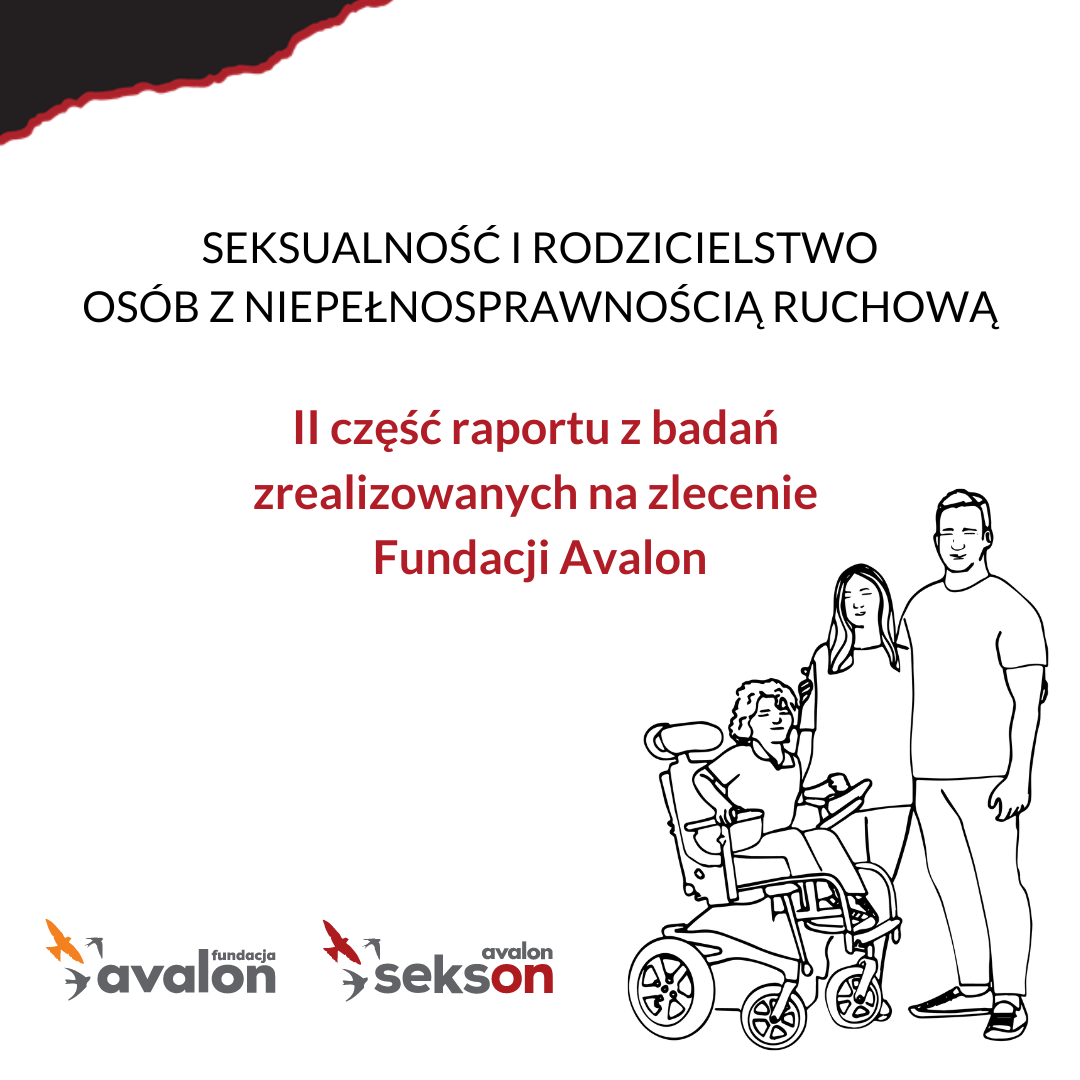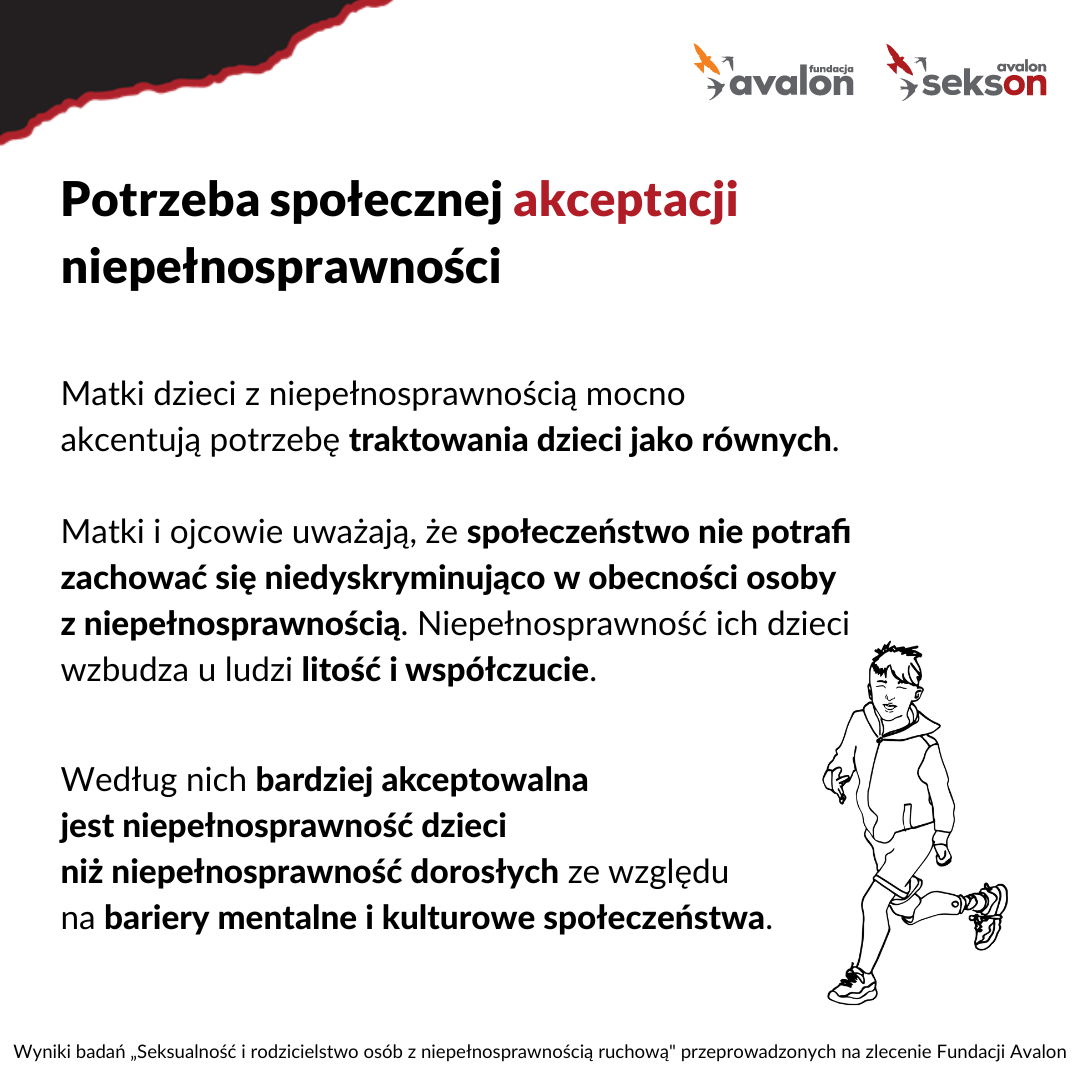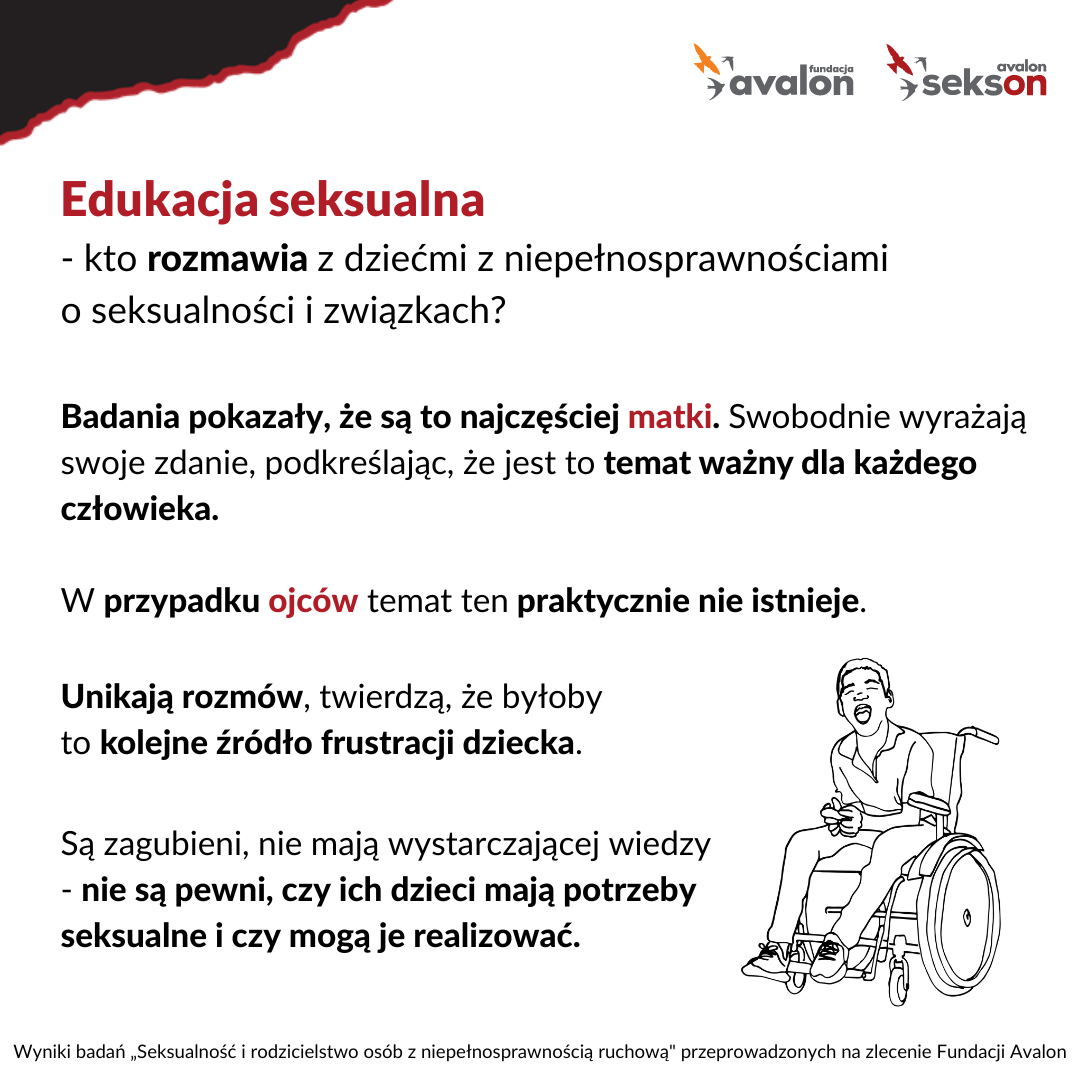The Avalon Foundation, one of the largest non-governmental organisations supporting people with disabilities, has presented the second part of its research report, entitled 'The Disability Foundation. 'Sexuality and parenting of people with mobility disabilities'. The survey was conducted as part of the Sexon Project, by SW RESEARCH with people with mobility disabilities, their parents, their partners and medical professionals. The aim of the study was to analyse the immediate environment of OzN in terms of access to sexuality knowledge in the broadest sense, including in the availability of intimate health services. The content of the report is available under link.
Disability in men has a greater impact on sexuality
For men, disability is more likely than for women to be a factor in the sexual (women - 23%, men - 35%) and relationship spheres (women - 15%, men - 22%). Men are also more likely than women to feel dependent on equipment to support their daily functioning, e.g. a wheelchair (women - 30%, men - 41%). In terms of limitations in the fulfilment of sexual needs, these are slightly more prevalent among men (definitely felt by 19% women and 33% men).
"Research has shown us that accepting sexuality in the face of disability is much more difficult for men. They have difficulty managing the emotions that arise in relation to this condition. Men are also more likely than women to fear that their sexual partner will not achieve sexual satisfaction in their relationship with them. This shows us that sex education or access to sexual rehabilitation is very important in terms of the needs and difficulties faced by people with disabilities in the area of sexuality."
Żaneta Krysiak, Sexon Project Manager of the Avalon Foundation.
Parenting and acceptance of disability
For most fathers of children with disabilities, as well as the men themselves, disability tends to cause frustration and strong negative emotions that they are not always able to cope with. In the case of fathers, the issue of lack of or reduced fitness was also raised in the context of perceiving the child's disability as a matter of not being able to cope with activities for which strength and physical fitness are needed. Women with disabilities, on the other hand, felt more strongly about the positive impact of parenting and relationships with their parents in the process of accepting disability and the bodily changes associated with it. Mothers of people with disabilities undoubtedly have a more emotional perception of their own and their children's situation. They realise how important it is to find the good things in life situations, to enjoy every day spent with their child, to see progress in their child's development.
What is the importance of personal assistance?
A personal assistant is a social worker who is a support for a person with an illness or disability in their daily life. Among those surveyed, only 12% use the services of such a person.Expectations of personal assistants vary, certainly such a service should be available to a much greater extent than currently and on a more flexible basis. Women see the assistant as an "invisible help", men are more likely to treat such a person as a friend.Assistants are seen as people who could not only support the independent life of a person with a mobility disability, but also have a positive impact on the relationship. Thanks to their presence, partners would not have to step into the role of caring person and would also be able to remain active at work, while the person with a disability would remain more independent. "According to the respondents of our survey, a key factor in the acceptance of disability is the way we talk about it. The language of the disability debate should become more neutral. A contributing factor to this could be the regular appearance of people affected by disability in public, social, media spaces. This has a key impact on the social narrative around disability and normalising it."
Żaneta Krysiak
Activities of the Sexon Project for OzN
These research findings show that people with disabilities are a highly discriminated group in Poland and, in this context, it is important to work towards equal treatment and respect for their rights. The Sexon project of the Avalon Foundation meets these challenges and continues to implement new initiatives, such as the cyclical film meetings at the POLIN Museum of Polish Jews 'MOVIE-MY ON VOICE', during which, in addition to a film screening, discussions are organised around the themes of disability, sexuality and human rights. Meanwhile, the fourth edition of the Sexon Conference will take place this October. This year's theme will be the body and corporality in an interdisciplinary approach. All activities of the Project are aimed at changing the social perception of sexuality and parenthood of persons with physical disabilities.The entire report is published under link.



